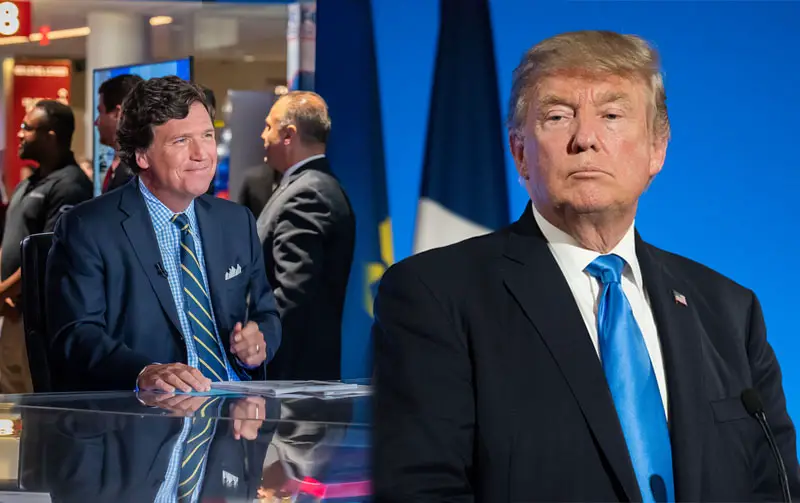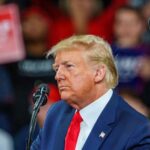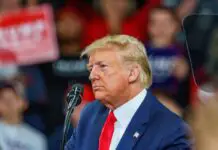Controversial former Fox News personality Tucker Carlson has once again ignited a firestorm of speculation and controversy, this time by stoking new conspiracy theories surrounding the United States and former President Donald Trump.
In a recent podcast interview with Adam Carolla, Carlson baselessly claimed that the U.S. is “speeding towards” the assassination of ex-President Trump. These unfounded assertions have sparked outrage and concern among experts and observers alike.
During the interview, Carlson criticized Trump’s impeachments and indictments, speculating about perceived threats to the former president’s life. This dangerous rhetoric gained traction within certain conservative circles, including among figures like Alex Jones and Dan Bongino. The claims echo the “deep state” conspiracy theories that have circulated in recent years.
Experts have warned that such inflammatory statements from public figures like Carlson can have serious consequences, potentially inciting violence or inspiring extremist actions. This concern is heightened by the fact that Carlson has previously interviewed Trump about assassination fears.
Carlson’s controversial history is not limited to this recent incident. His tenure at Fox News was marked by the propagation of fringe conspiracy theories, nationalist conservatism, and far-right ideologies. He faced criticism for spreading misinformation, endorsing election conspiracies, downplaying the Capitol riot, and attacking journalists.
His departure from Fox News has not quelled his ability to capture attention and provoke discussion. Starting a new show on a social media platform, Carlson continues to influence public discourse with his extreme viewpoints.
This latest episode highlights the responsibility that media personalities hold in shaping public opinion and discourse. The impact of conspiracy theories and unfounded claims can extend beyond mere discussion, potentially affecting political and social dynamics. The controversy also underscores the need for critical thinking and fact-checking in the face of sensationalized claims.











